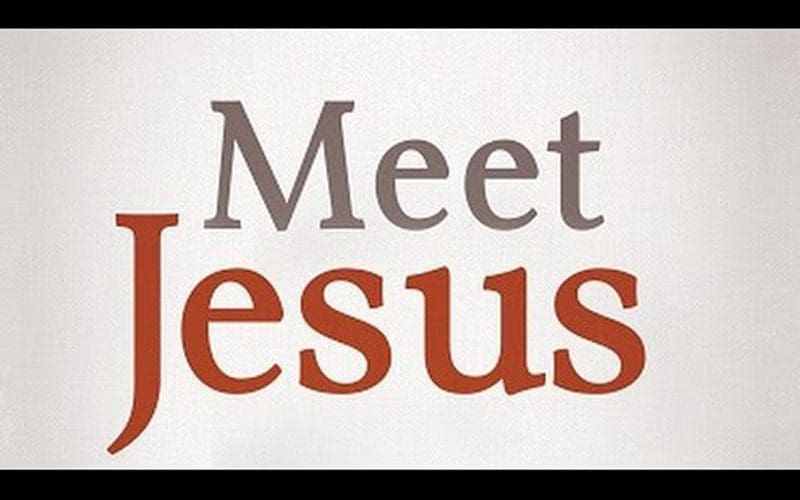The Passover of the Jews was at hand, and Jesus went up to Jerusalem. In the temple he found those who were selling oxen and sheep and pigeons, and the money-changers sitting there. (John 2:13-14)
After a few days in Capernaum, Jesus leaves Galilee and travels south to Jerusalem, and he arrives at the temple. I want to paint a picture for you today of what Christ found when he got there. I think you will recognize the picture. I think you will find yourself saying with me, “What Christ found at the temple is exactly what I am dealing with in my life.”
Then I want you to see what Christ did at the temple, and again, I think you will find yourself saying with me, “What Christ did there is exactly what I need him to do in me.”
What Jesus Found at the Temple
The traders
In the temple he found those who were selling oxen and sheep and pigeons, and the money-changers sitting there. (John 2:14)
The traders were there to meet a need and to provide a service. When people came to the temple, they would offer an animal as a sacrifice. If you travelled 50 miles to get to the temple, it would not have been easy to bring an ox or a sheep with you. It would be easier by far to buy the animal when you arrived. So the traders who were selling oxen, sheep and pigeons were there to sell what the people needed.
The traders were people who saw an opportunity to make a living by providing a convenient service—nothing wrong with that. At first there would only have been a few of these traders.
In the early days, they were located on the Mount of Olives on the other side of the Kidron Valley, but as anyone who runs a retail business knows, “location matters!”
These traders would complete for the best spots for their business, and since the best spots were the ones nearest to the temple, over time, these booths crept nearer and nearer to the temple. And eventually they ended up inside the temple itself.
I expect that one of the especially entrepreneurial traders made a special deal to get in there. This was the prime location, and being inside the temple would give him the advantage over everyone else: “Buy from me. It’s the least distance for carrying your sheep.”
Once one of the traders got on the inside, the rest would soon be scrambling to get inside as well. Here was an opportunity for additional income for the temple. You know what it’s like: Once the camel gets its nose under the tent, it isn’t long before you have the whole camel in the tent. By the time of Jesus, the entire outer court of the temple had been taken over by these traders with their stalls, selling animals and changing currency.
The temple
You shall seek the place that the LORD your God will choose out of all your tribes to put his name and make his habitation there. There you shall go, and there you shall bring your burnt offerings and your sacrifices… (Deuteronomy 12:5-6)
The temple is of huge significance in the Bible story, because in Old Testament times it was the place where people met with God.
Notice, it is God who decides the meeting place: “It is not for you to choose where you will meet with me. I am the One who will choose where I meet with you.” God said, “I will put my name there; I will make my home there.” There will be a holy place where sinners can meet with God, and God says, “You must come to this place.”
David was the one who discerned that that place was Jerusalem, but it was his son, Solomon, who actually built the temple. It had been destroyed and rebuilt by the time of Jesus, and the temple area was divided into various courts designated for different groups of people.
There was a court where only women could go, an area where only priests could go, and at the center of the temple, there was the Most Holy Place, where only the High Priest could go, and even he could only go there once a year. That’s how it was until Christ came.
The outer court, which was the first area you would walk through to go in the temple, was called the Court of the Gentiles. This was the one area where people from any nation could come to worship. And in the time of Jesus, it had been taken over by the traders!
Imagine you are a Gentile and you have come to seek God, to pray, and to worship. But when you arrive at the temple, you find the place crowded—packed out with traders. There is a wall of noise from people bartering and arguing, not to mention the noise from the animals. The place devoted to seeking the presence of God has been taken over!
I wonder if you recognize this picture. What Jesus found in the temple is something many of us know from our own experience. Your life is given to you by God so that you can seek him, find him, have fellowship and communion with him, and find life in him.
In your heart, you want to find your rest, satisfaction and joy in God. But when you look at your life, you find that it has been taken over. The traders have moved in, and now your soul is filled with noise and conflict and seemingly endless argument.
You look at this scene and you say, “My life has become a place of relentless competing demands. It has been increasingly taken over by revenue goals and sales targets. This life, that was meant to be lived for God, has been taken over.”
Have you ever felt that your life has been taken over by the traders? Or that doing deals has taken the place of meeting with God? Or that worship, love and joy in God are being crowded out of your life, and that more and more, your life is getting squeezed out by the unending demands of chasing after the latest deal or special offer?
When the traders have set up shop in your life, it isn’t easy to get rid of them. Imagine a Gentile going up to one of the traders in the outer court of the temple, “Excuse me. Could I have a word with you?”
The trader says, “Sure—what do you need? Sheep? Oxen? Pigeons?”
“No, I just want to say that this court is meant for people who have come seek after God, and since its crowded, I’d like to ask if you could consider moving out!”
There’s no chance of that happening! Once the traders have moved in, nobody could get them out! Ordinary people didn’t have the power to do it. And the temple authorities, who had the authority to do it, didn’t have the will to do it.
Who can clear out the clutter? Who has the power to deal with the tyrants who set up shop in your soul?
What Jesus Drives Out
Making a whip of cords, he drove them all out of the temple, with the sheep and oxen. And he poured out the coins of the money-changers and overturned their tables. And he told those who sold the pigeons, “Take these things away; do not make my Father’s house a house of trade.” (John 2:15-16)
Christ’s coming brings a purge. He drives out the traders. He will not allow them to take the place that belongs to God alone. Notice that Christ does not destroy the traders. The traders have their place. Christ does not challenge the legitimacy of their business. But he will not allow them to take the place that belongs to God.
Christ drove out the animals, (but he did not release the pigeons). He told those who sold the pigeons, “Take these things away.” (John 2:16)
The distinction here is obvious. The traders with sheep and oxen would soon catch up with their animals that had been driven out from the temple. But if Christ had released the pigeons there would be no way for the traders to get them back. Christ takes great care not to destroy their livelihood, he merely drives it out from the place where it does not belong.
Christ overturned the tables of the money changers,
(but he did not take their money).
There would have been scramble to pick up the money from the floor, but within an hour or so, the money changers would have had their tables set up in the street outside the temple and back to business as usual. So Christ was not saying to them, “You cannot be in business.” He was saying, “Your business cannot take the place of God.”
The people’s reaction is striking.
It seems clear from this story that the people found joy in what Jesus had done. You can be sure that if people had wanted traders in the temple there would have been a protest at what Jesus had done, and perhaps even a riot. But we don’t see anything like that.
Instead we are told that “many believed in his name” during this time (John 2:23). Although this belief proved to be no more than a temporary interest in Jesus, it at least showed a favorable response. The traders were an intrusion and nobody had been able to do anything about it, until Jesus. Along with the feeding of the 5,000, this many have been one of the most popular things Jesus ever did.
Jesus’ ability to drive out all the traders is remarkable
1. It was not because of his weapon.
Making a whip of cords… (John 2:15)
The word “cords” is literally rushes. [1] Rushes would have formed a kind of matting in the temple. Christ would have picked them up, twisted them together, and used them to drive out the animals, and the traders would have been off like a shot after them. You have to have something to drive out animals, but anyone who wants to make a case for Jesus using violence in this story should understand that Jesus was armed with vegetation!
2. It was not because he had an army.
Christ acted entirely alone. His disciples were present (John 2:17), but they were only observers. They played no active role.
Leon Morris is surely right when he says, “It is clear that it was not so much the physical force as the moral power He employed that emptied the courts.” [2] Jesus Christ cleansed the temple by the sheer force of his personal presence.
We see other glimpses of Jesus’ glory when, for example, the people from his home town try to push him off a cliff and he walks right past them (Luke 4:28-30), and when Malachi says, “Who can endure the day of his coming… For he is like a refiner’s fire” (Mal. 3:2).
When Jesus comes in glory, he will overthrow all his enemies with the breath of his mouth! Think of what Jesus Christ can do if he is present in your life. Make Jesus Christ the Lord of your life and he will put the traders in their place.
What Christ Brings In
His disciples remembered that it was written, “Zeal for your house will consume me.” (John 2:17)
When the disciples saw what Jesus did, this was the Scripture that came to their minds. When Messiah comes, the Scripture says, he will be relentless in his passion to make God’s House all that the Father intended it to be.
In the New Testament, the local church is referred to as “the household of God” (Eph. 2:19). Peter says that believers are being built up into “a spiritual house” (1 Pet. 2:5). Paul says to the Corinthians, “God’s temple is holy, and you are that temple” (1 Cor. 3:17).
One of the marks of becoming like Jesus is to share his passion for God’s house, and to play your part in making it all that God intended it to be.
What does God intend his house to be?
1. A place of prayer for all people
My house shall be called a house of prayer. (Isa. 56:7)
God wants us to come to him in prayer. He wants us to seek him, find him and draw near to him. The great purpose of God is that all peoples would come to him.
God speaks here of a day when that will happen, a day when people from every tribe and nation will worship him. The passion of Jesus is that God’s house would be a place where people from all nations would come and seek the living God.
2. A place where atonement is central
He shall take some of the blood of the bull and sprinkle it with his finger on the front of the mercy seat. (Lev. 16:14)
At the center of the temple was a room in the shape of a perfect cube called the Most Holy Place. In Solomon’s temple, that room housed the Ark of the Covenant. Every year the high priest would go in there and sprinkle the blood of a sacrificed animal on the lid of the ark, which was known as the mercy seat. The passion of Jesus is that God’s house would be a place where people get right with God, where people would come back into relationship with him through forgiveness by this atonement.
3. A place where God’s presence is known
“There, above the cover between the two cherubim that are over the ark of the Testimony, I will meet with you.” (Ex. 25:22 niv)
If we are like Jesus, zeal for God’s house will consume us. I wrote down in my journal: “Zeal for consumes me.” Fill in the blank! Lord, let the controlling passion, the consuming zeal, the first love of my life be zeal for your house. Ask yourself, “With all the things for which I have zeal, is it true of me that I have zeal for God and for his house?”
If you read about the temple in the days of Solomon, you will see that God’s house was a place of prayer, it was the place where atonement was made, and it was the place where God’s presence came down (see 1 Kgs. 8). But by the time of Jesus, none of these things were happening in the temple! Why?
The place of prayer for people from all nations had been leased out to traders. And the temple was no longer a place of atonement, because when it was destroyed, the ark had been lost and so there was no mercy seat. You could no longer make atonement. All you could do was come to God and say, “I’m sorry.”
Centuries had passed since the cloud of God’s presence had come down to the temple. None of what God intended for the temple was happening, and Christ was filled with a great passion that it should.
Making God’s house all that God intended it to be took more than driving out the traders. How long do you think it was before they were back in the temple trading again? I expect that as soon as Christ returned to Galilee they would have made their way back and that may well be why three years later we find Christ driving them out again (Mat. 21).
To make God’s house all that God intended it to be took more than reforming the temple.
Christ came to replace the temple. And that is the great significance of this exchange: “The Jews said to him, ‘What sign do you show us for doing these things?’ Jesus answered them, ‘Destroy this temple, and in three days I will raise it up’” (John 2:18-19).
“The Jews then said, ‘It has taken forty-six years to build this temple, and will you raise it up in three days?’ But he was speaking about the temple of his body. When therefore he was raised from the dead, his disciples remembered that he had said this, and they believed the Scripture and the word that Jesus had spoken” (John 2:20-22).
Christ becomes the new temple. He is the meeting place between man and God. You don’t have to go travel to some religious site to meet with God. You meet with God by coming in repentance and faith to Jesus Christ.
3 Ways to Respond
1. Identify the traders that have taken over the place that belongs to God alone.
- What is one thing that most threatens to occupy the place that belongs to God?
- Ask the Lord today to put the put the traders in their place.
- Drive them out into the streets where they belong
2. Ask the Lord to fill you with his zeal.
- Lord, make this life a temple where you reign and rule by the presence and power of your Holy Spirit.
- Let me live in the peace and joy of knowing that you have made atonement, through the shedding of your blood, and that there is therefore now no condemnation for me.
3. Renew your commitment to God’s House, the body of Christ, the church.
- Lord, fill me with zeal for your house.
- Help me, Lord, to play my part in this church becoming increasingly a place of prayer for people of all nations, a place where atonement is central, a place where God’s name is honored and God’s presence is known.
[1] Leon Morris, The Gospel According to John, p. 169, Eerdman’s, 1995.
[2] Ibid.
[elementor-template id=”128476″]





